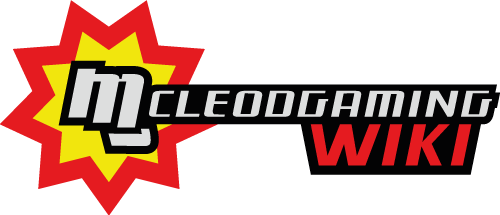Byll (Message Wall | contribs) (Created page with "'''Tournament legal''' is a set of reccommended and accepted rules and settings for use in competitive ''Super Smash Bros.'' tournaments. The following is the current [[Smash Fla...") |
No edit summary |
||
| Line 1: | Line 1: | ||
| + | {{Outdated}} |
||
| − | '''Tournament legal''' is a set of |
+ | '''Tournament legal''' is a set of recommended and accepted rules and settings for use in competitive ''Super Smash Bros.'' tournaments. The following is the current [[Smash Flash Back Room]] ruleset for ''[[Super Smash Flash 2]]'' as of March 19, 2011. Note the following ruleset only applies to version 0.7 of the [[Super Smash Flash 2 Demo|''SSF2'' Demo]], therefore, it is subject to be changed at any moment following demo updates. |
== General rules == |
== General rules == |
||
Revision as of 03:48, 20 February 2012

|
This article is outdated.
It may contain traces of some old data and statistics and requires an urgent update. You can help the McLeodGaming Wiki by updating it. |
Tournament legal is a set of recommended and accepted rules and settings for use in competitive Super Smash Bros. tournaments. The following is the current Smash Flash Back Room ruleset for Super Smash Flash 2 as of March 19, 2011. Note the following ruleset only applies to version 0.7 of the SSF2 Demo, therefore, it is subject to be changed at any moment following demo updates.
General rules
- Matches are 4 stocks.
- Timer should be set to 8 minutes.
- Items are set to none/off.
- Pausing mid-game without asking a referee/TO (Tournament Organizer) first may result in loss of the current stock.
- Sets are best out of 3; Winners/Losers/Grand Finals are best out of 5.
- Stalling is banned. Stalling is defined as delaying the game as to make it unplayable. This includes:
- Going under and around a stage for purposes other than recovery.
- Using Goku's infinite recovery for stalling purposes.
- Using Kaiō-ken Goku's taunt to run out the clock.
- Using Black Mage's stop for stalling purposes. A maximum of 3 consecutive uses will be allowed.
- Using infinite combos to stall. Infinite combos will be capped at 150%.
- Moving around the stage to get to a better position is not stalling.
- The stage striking method will proceed as such:
- Both players pick their characters for game one.
- Each player strikes stages from the neutral list until one stage remains.
- Each player announces a stage to be banned for the set.
- The first game is played.
- The loser of the previous game announces the next stage.
- The winner of the previous game chooses their character.
- The loser of the previous game chooses their character.
- The next game is played out.
- Repeat steps 5-8 for all proceeding matches.
- Disputes over controller ports will be resolved via Rock-Paper-Scissors. The loser of the previous game may choose to R.P.S. again for all proceeding matches.
- Infringement of any rules results in a loss of one stock. However, if the opponent of the rule-breaker fails to recognize and report the incident, it is ignored.
Stages
- For an explanation as to why stages are counter-picked or banned, see Banned stage.
Stages are divided up into starter, counterpick, and banned. Some stages are sorted between two classes as they represent advantages at disadvantages to characters that play on certain stages. It should be noted that the Feature Switch is taken on count.
Neutral
Neutral/Counterpick
Counterpick
Counterpick/Banned
Banned
- Casino Night Zone
- Castle Wily
- Green Hill Zone
- Hidden Leaf Village
- Hyrule Temple
- Mushroom Kingdom II
- Planet Namek
- Sector Z
- Shadow Moses Island
- Twilight Town
